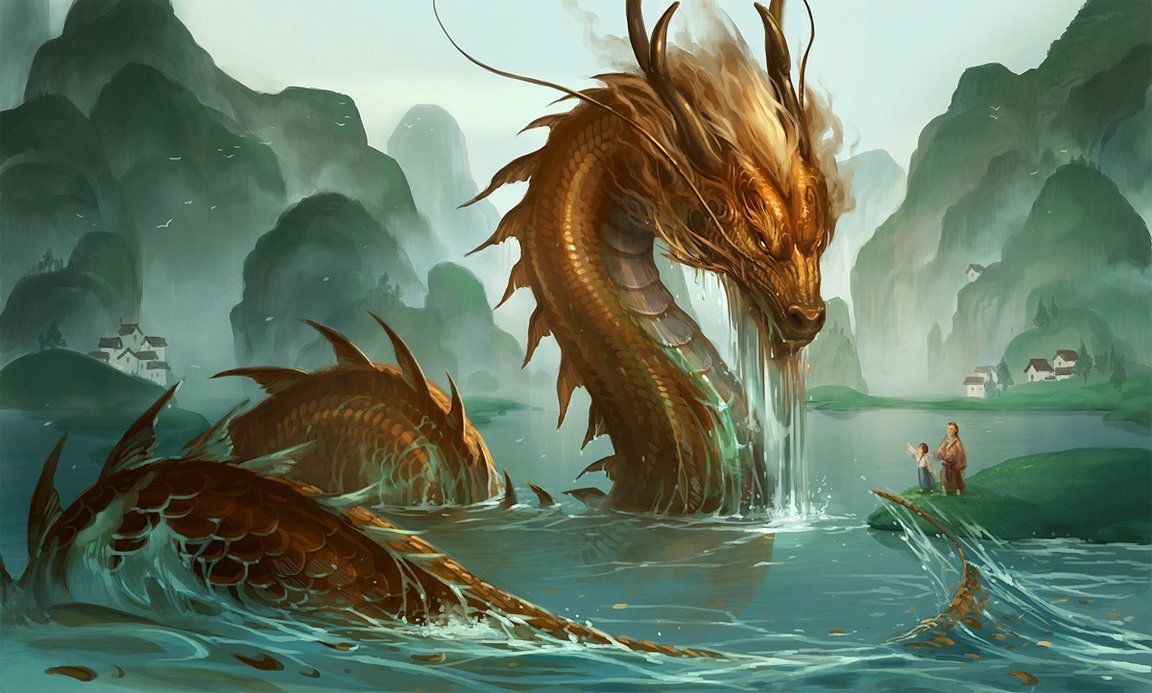Let’s take a looking at a week in gaming from 8/26/13 to 8/30/13. Below is a special feature about a controversial topic looking at why Japanese games don't sell well in the states.
You Should Start Considering a Playstation Vita (8/26)
Sony had another strong press conference this year, this
time at Gamescom 2013. One of the stars of the show was the Playstation Vita
which looks to begin a “renaissance” as Polygon’s Colin Campbell calls it.
The value of the Vita isn’t new. Owners have been taking advantage
of Playstation Plus’s monthly free games for almost a year now, and in
addition, have been treated to a growing number of strong indie titles such as
my recently reviewed Hotline Miami. Sony’s indie initiative has been developing
for years now, giving designers the opportunity for a smooth transition over to
their handheld from PC; and with Vita’s strong attach rate, developers can look
forward to steady sales.
And the indie games keep coming. There were several strong
titles listed at their Gamescom presentation including: Joe Danger 2, Fez, Starbound
Velocity 2X, Minecraft, The Binding of Isaac: Rebirth, Hotline Miami 2: Wrong
Number and Rogue Legacy. This is an incredible line up of proven
titles such as Fez and Rogue Legacy and highly anticipated games such as
Hotline Miami 2: Wrong Number. Indie games have a perfect place on a handheld,
and Vita seems to be delivering this in spades.
AAA games have taken a back seat from Vita support thanks to
slow sales. But the announcement of Borderlands 2 might change that. The Vita
hardware has proven before that it’s quite capable of delivering console like
experiences, and most recently in first person shooters with the Killzone
Mercenary Beta. Hopefully with the Borderlands 2 announcement along with the
price drop to $199, the (assumed) port will be a success, giving AAA studios
the green light to resume support of the system.
But I think it’s the $50 price drop that’s the deal sealer
for the Vita. Nintendo couldn’t maintain a $249 price, besides the fact of how
under powered it is to the Vita, and even though before the official announcement
of the Vita’s price was assumed to be much more expensive, anything over $200
is too much to ask for in a handheld device if it’s not a smart phone or an
Apple product.
The Vita is prepped to make a comeback beginning this
holiday (look forward to Black Friday bundles this year). With an appropriate
price drop and a lineup of fantastic looking games, cost and software is almost
a sure recipe for success.
Abortion in Video Games - Choice Texas (8/29)
Some of us have played games about depression, some look
forward to games about pregnancy, and those that own an Ouya can look forward
to a game about cancer. Two women in Texas, Carly Kocurek and Allyson Whipple,
are making a game about abortion, taking the level of social challenges in
games to a controversial degree.
Choice: Texas will be a point and click styled adventure
game about 5 pregnant women who face abortion as an option. Each case will be
different; one woman is a 19 year old who’s a rape victim, the other is an
excited mother-to-be who’s pregnancy threatens her very life.
As taken from the title, the game aims to highlight the socioeconomical
barriers women face when considering abortion in Texas. Abortion clinics aren’t
easily accessible via transportation alone. But even once women get there, they
must stand in long lines before undergoing discouraging mandatory counseling.
When not considering the choice of abortion, women face
costly alternatives. Preventative measures aren’t often cheap, and natural
births could cost up to $9,000 dollars. It’s a systematic fucked if you do,
fucked if you don’t that has been helped set by Texas governor Rick Perry who’s
most recent bill passed will mandate specific criteria that only 5 clinics in
the state qualify for.
Choice: Texas has not gone unnoticed. The game has received
criticism from activists groups, and more offensively, Youtube commenters who’s
online behavior caused Korcurek to disable it completely. However this hasn’t
discouraged them from continuing their indieGoGo campaign, rising over $5,000
for dev elopement costs and event presentation.
As one who’s pro-choice, I clearly have a bias in this
game’s significance; nonetheless I think it’s important that a game like this
exists. An industry that’s several decades old still gets the misconception of
senseless violence. But with more games like Choice: Texas, along with several
other emotionally driven and socially inspired indie titles, we’re moving
further and further away from that increasingly inaccurate assumption.
Source: Choice: Texas
VIA: Polygon
"Not forced to play as a n**ger" GTA V reactions (8/30)
Nothing is sacred, not even the highest anticipated game of this final run of releases this year.
Youtube is a wonderful space where you can watch almost everything (even porn) and post just about anything (except for hardcore porn).
But it’s also the arguably the largest cesspool of misogynistic, racist, and downright ignorant commenters. On GTA V’s final official trailer, the impulsives took to the Youtube comments section and spouted away:
NO ONE F**KING CARES ABOUT PC. THERE MADE FOR NERDS
Yes… really hot nerds.
LOOKS LAME. AT LEAST YOU’RE NOT FORCED TO PLAY AS A N**GER THO
Sup playboy…
THIS GAME HAS SWEG
So I looked up “SWEG” on urbandictionary.com cause I’m a 24 year old in an old man’s body, and this is what I found:
- A combined fart that smells both sweaty AND eggy. It is illegal in both North America AND South America.
- instead of using "Swag", you use "Sweg" to be more hipster/ indie.
- Out of religious sensitivity, I choose to leave this one out.
GTA V IS GONNA BE THE SHIT. LIKE OUT YOU’RE A$$ A$$HOLE
My sh*t don’t stink, so I’m looking forward to it.
DAT GIRL AT 0:42 IS SOOO HOT I WOULD F**K HER. IF THIS GAME HAD BETTER GRAPHICS
… Well, you can wait until the PC release.
AGE RESTRICTED DAMN
But your mom will buy it for you anyway.
I HOPE THIS IS GOOD BCUZ THE LAST 1 WAS A PILE OF RUSSIAN SOUNDING SH*T.
“I’m from Yugoslavia you dip sh*t.”
Source: Kotaku
A Week in Gaming Special Feature:
Why Americans Don't Buy Japanese Games:
American Developers Speak
Reported on August 27th 2013
Few Japanese games have captured the spotlight this generation compared to past generations dating back to the SNES. “Japanese games are formulaic”, “Japanese games impenetrable”. These claims were near nonexistent 10, 15, 20 years ago, but they stand as barriers today as Western titles capture most of the industry’s attention.
Kento Kojima, a lead programmer at 2K, gave a presentation at a developers’ convention in Japan speaking about some of the responses he got when asking American developers why Japanese games aren’t selling west side.
1. The market has shifted to North America and Europe.
Though it’s difficult to pinpoint when this paradigm shifted, western titles are banking millions of dollars in sales from their very popular titles. Though the cash flow wasn’t that thick in previous generations, we’ve seen Japanese games been removed from their dominance in popularity. Looking at the top sales charts, with the exception of Nintendo, we hardly see Japanese games making a dent in the global market.There’s a cultural gap between how the west and Japan see fantasy.
2. There’s a cultural gap between how the west and Japan see fantasy.
Everything from Aliens to Star Wars to old European and overall western fantasy, games made in the US and Europe draw influence from “pop-sci-fi” and classic western fantasy. Japanese fantasy roots itself in a completely different culture, and while their fascinating worlds resonated with conventional nerds and older core gamers, with the games market so mainstream, the wider demographic is more accepting of western fiction than what’s seen in the Japanese culture. Developers recognize this (Capcom being one of the most active) and have contracted western developers to reboot their games for western appeal. Others take it upon themselves in games such as Binary Domain and Dragons Dogma.
3. Japanese games aren’t easy to get into.
This one is critical. You hear many of today’s gamers scoff at a game that takes more than a few hours to pick up its pace into the meaty gameplay. Japanese RPGs are notorious for this, in one way or another involving a characters loss of memory or introduction to a new world, acclimating themselves to the society (whether this is for the player or both the player or the character), and having the game deliver their systems piecemeal to the player. With games like Mass Effect 2 or Dead Space 2 (though admittedly action centered games), the shit hits the fan immediately, satisfying the player’s greed for instant gratification.
4. Japanese games are to talky, and their stories aren’t good at evoking empathy

This is another common complaint for Japanese titles. While western games use voice acting and require fewer encounters with NPCs, Japanese games skew to be more text heavy. This was my biggest complaint in my Ni No Kuni review, as the characters’ dialogue held a lot of fluff. For more action centric titles, characters tend to be far too melodramatic for western tastes, breaking the believability and connection with their characters. All in all, their stories follow repetitive arches that many of us westerners can't empathize with. This doesn’t happen often in western games either, but with more recent games like The Walking Dead, The Last of Us, and dialing back to the ending of Red Dead Redemption, we find ourselves fighting back more tears here.
5. Westerners don’t like the body types in Japanese games, preferring more “Roman style” bodies.

This is an interesting one, something that not many consciously realize (including myself). This may further distance the relatability between western players and Japanese game characters. This is mere conjecture, but this could stem from Gladiator builds that are muscular which is much imbedded in America’s “meat head/lets-go-to-the-gym-bro” culture. This assumingly exists at a much smaller scale in Japan as much of the population is much smaller in frame. In addition, there are several games that feature adolescents who aren’t built like fully developed adults.
6. Westerners prefer movie like performances, where Japanese games are more theatrical.

This refers back to the point of lacking empathy. Japanese games aim to personify values, principles and ideas instead of actual human beings. They have characters that represent and embody nobility, death, carnage, love, and innocence. This isn’t what our western culture relates to. This is why we see games draw inspiration from films, channel human nuances, and they achieve this by casting talented actors such as Troy Baker, Ashley Johnson and Ellen Page.
7. Japanese games are hardcore where are western games are aimed at the masses

Complex systems and brutal difficulty; these are the backings of much of Japanese game design. On top of getting over the hump of slow beginnings, many Japanese games have us getting used to complex grids, crafting and item management, or on the opposite end, memorizing unrelenting enemy patters and environmental hazards. It isn’t that western games don’t embody this, but the most successful games are streamlined to be more intuitive and user friendly rather than complex and having slow pay-offs.
8. Japanese games seem to be stuck in the past

This, in many ways, is the biggest downfall for Japanese game design philosophy. Their admirable traditionalist culture bleeds over into game development, sticking to similar methods of design; great examples include save points and random battles. These characteristics were a product of their time because the technology could not permit games to support liberal saving or rendering enemies in real time in the over world. The technology has been capable of handling this for several years, and yet we still see remnants of it today.
Western games have pushed genres forward, blended them together and even created new ones. Where Japanese development was the leader of innovation, western development has been at the forefront of it for this entire console generation.
Looking forward,
...it’s hard to see where the rise of Japanese game development will happen again. Sure, we get action games like Metal Gear Rising, RPGs like Ni No Kuni, abstract titles such as Catherine, and numerous 3DS and mobile titles. But the jump to the next generation has us excited for Watch Dogs, Titanfall, Destiny, and Infamous Second Son. I’ve yet to hear anyone discuss D4 (understanding that there haven’t been much details of it at all), nor do I hear much gamers or the press getting excited about future Japanese titles. It’ll be interesting to see what their vision of the next generation is and how that’ll evolve from what we’ve seen for the past decade.
Source: Kotaku














No comments
Post a Comment